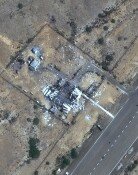Progress on Financial Safety Net Expected at Seoul Summit
Progress on Financial Safety Net Expected at Seoul Summit
Posted June. 29, 2010 13:52,
With the end of the Group of 20 summit in Toronto Sunday, the countdown has begun for the November G20 summit in Seoul that will tackle advancing developing economies and setting up a global financial safety.
The Toronto event, however, failed to agree on a bank tax based on the conditions of each country to recover tax money spent on the financial crisis. The U.S. and Europe agreed to halve their financial deficits by 2013.
President Lee Myung-bak said Sunday at the last meeting of the Toronto summit, We will work to draw tangible results toward the global financial safety net at the G20 summit in Seoul.
He said development will top the main agenda at the Seoul summit, saying, Many developing and emerging economies have had difficulties due to the financial crisis, and the development gap has further increased.
This is the first official introduction of the Korea Initiative to be led by Korea at the G20 to the international community. President Lee also announced Seoul`s hosting of the Business Summit, which 100 CEOs from global companies will attend.
○ Korea Initiative
The Korea Initiative, the core agenda to be led by Korea at the Seoul G20 summit Nov. 11, can be summarized in two points: financial safety net and development.
Experts say these are appropriate for Korea, a country which bridges developed economies with developing ones.
President Lee said, A global financial safety net is a very important issue to many developing countries, which suffered severe difficulties due to drastic capital inflow and outflow, adding, I hope to see a big improvement in Seoul.
G20 leaders recognized the necessity of international cooperation on a global financial safety net to prevent a sudden outflow of foreign reserves in an economic crisis, which gives a big shock to developing nations. They ordered their financial ministers and central bank governors to prepare for policy alternatives by the Seoul summit.
Also to be covered is the Korean developmental agenda on providing infrastructure, a base for economic growth apart from monetary assistance, to developing economies.
Leaders agreed to launch a developmental working group and submit an action plan for several years to reap substantial benefits at the Seoul summit.
Except for fiscal soundness and bank tax, the Toronto summit handed over most issues to the Seoul summit. Major issues such as a countrys policy alternatives for balanced economic growth, bank capital and liquidity regulation, reform of international financial institutions, and verification of the implementation of fossil fuel subsidies will be addressed at the Seoul summit.
For this reason, Korean representatives at the Toronto summit were often congratulated by other countries representatives, but Seoul feels a huge burden.
About 80 percent of the issues checked at the Toronto summit will see conclusion in Seoul, said Sakong Il, the chairman of the G20 Summit Korea Coordination Committee, at the media center at the Park Hyatt Toronto.
If Korea does well, it will be a good opportunity to enhance Koreas status, but if it doesnt, it will entail a big risk because it will only confirm the perception that a developing country cannot do well.
○ Big advance in fiscal soundness
The G20 summit in Toronto proposed a specific base point on fiscal soundness and concluded that a bank tax will be introduced depending on each countrys situation.
G20 leaders announced in their communiqué halving financial deficits by 2013 in developed economies and preventing government debt from growing by 2016. Since Korea aims for balanced financial balance in 2013-14, this is consistent with the conclusion of the G20.
Given the peculiar case of Japans financial situation, the country was deemed to have reached fiscal soundness. The clause that dampened demand following financial constraints shall not undermine economic recovery reflected the opinion of the U.S., which focused more on economic stimulus over fiscal soundness.
Developing nations also had no obligation to set and conform to the same goals as developed nations.
International cooperation broke down, however, after the summit decided to introduce the bank tax depending on each countrys situation. Accordingly, Korea can make its own bank tax model independently but controversy could erupt over the introduction.
The communiqué included policy alternatives for balanced world economic growth by addressing the global trade imbalance. Developed economies seeing deficits in the trade account balance decided to increase their competitive edge in exports and savings rates, while developing economies with a trade surplus chose structural reform to stimulate their domestic markets.
China, considered the culprit of the global trade imbalance, was criticized. After Beijing announced reform of its foreign exchange system June 19, however, only the expression enhancing the flexibility of currency exchange was included in the communiqué without directly mentioning China.
lovesong@donga.com







